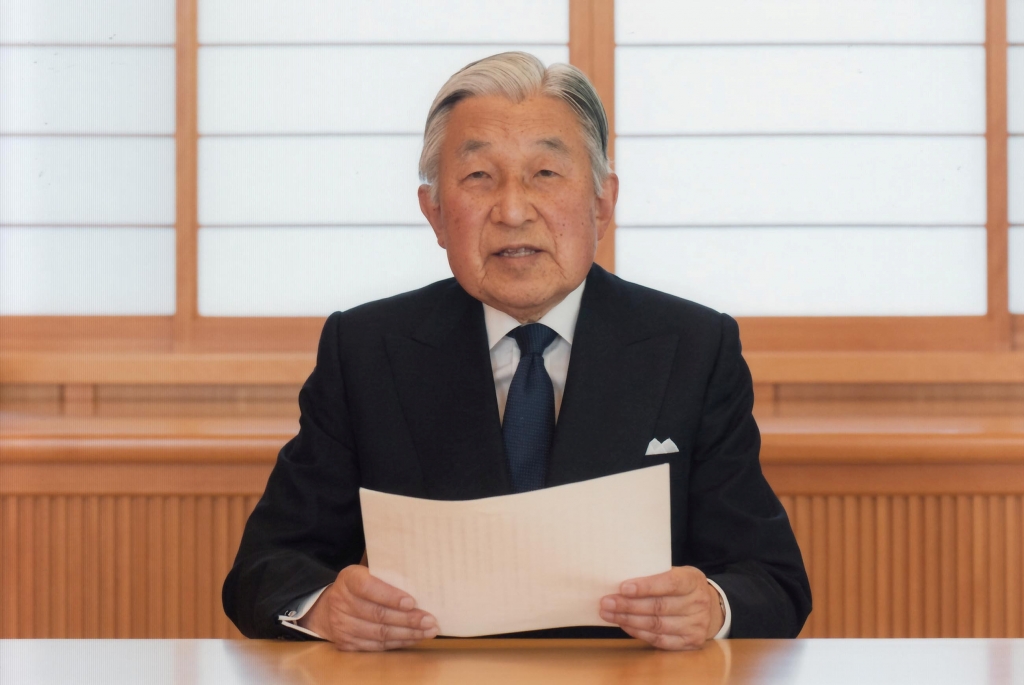-
Tips for becoming a good boxer - November 6, 2020
-
7 expert tips for making your hens night a memorable one - November 6, 2020
-
5 reasons to host your Christmas party on a cruise boat - November 6, 2020
-
What to do when you’re charged with a crime - November 6, 2020
-
Should you get one or multiple dogs? Here’s all you need to know - November 3, 2020
-
A Guide: How to Build Your Very Own Magic Mirror - February 14, 2019
-
Our Top Inspirational Baseball Stars - November 24, 2018
-
Five Tech Tools That Will Help You Turn Your Blog into a Business - November 24, 2018
-
How to Indulge on Vacation without Expanding Your Waist - November 9, 2018
-
5 Strategies for Businesses to Appeal to Today’s Increasingly Mobile-Crazed Customers - November 9, 2018
Why Japan’s Emperor May Be Considering Abdication
It’s complicated. While Emperor Akihito never said he would “abdicate”, or step down during his Monday address, he did make it clear that his declining health has made it hard for him to continue in his official capacity.
Advertisement
“There are times when I feel various constraints such as in my physical fitness”.
The 82-year old monarch, in 10-minute pre-recorded speech said he wanted an orderly imperial family succession.
Japanese media reports said the government may consider enacting a special law allowing Akihito’s abdication that would not be applicable to his successors, because debate over a revision of the Imperial House Law could take too much time since it is likely to reignite debate over whether to allow female emperors and other divisive issues.
A merely ceremonial role in Japan’s political system, the emperor is a symbol of the nation and of national unity according to the Japanese Constitution.
The public address marked only the second time Akihito has spoken directly to the nation.
Upon Akihito’s demise, the throne would pass to 56-year-old Crown Prince Naruhito whose only child is a daughter. However it could be a drawn-out process as it would require legal reform and a vote by parliament to amend existing rules.
Emperor Akihito was enthroned at the age of 55 upon the death of his 87-year-old father Emperor Hirohito in 1989.
Emperor Akihito says his advancing age and weakening health mean he may no longer be able to carry out his duties, setting the stage for Japan to prepare for an historic abdication.
But in his video message Akhito said that even the establishment of a new authority won’t “change the fact that the Emperor continues to be the Emperor till the end of his life, even though he is unable to fully carry out his duties as the Emperor”.
“His majesty the emperor hints at abdication”, read a two-page extra edition by the top-selling Yomiuri Shimbun daily. He has already received treatment for heart problems and cancer. The first one was in 2011, when an quake and tsunami devastated the northeast coast of Japan causing a nuclear disaster in Fukushima.
Referring to demise of an emperor, he said, “The practice in the Imperial Family has been that the death of the Emperor called for events of heavy mourning, continuing every day for two months, followed by funeral events which continue for one year”.
Beloved by the Japanese public, most people seem to support the emperor’s desire to step down.
Prime Minister Shinzo Abe later told reporters that given the emperor’s age “and the burden of his duties, I believe we need to think what grievance it causes him and what we can do”.
Advertisement
The Emperor’s official duties have been reduced, but the Emperor said in the video message, “I think it is not possible to continue reducing perpetually the Emperor’s acts in matters of state and his duties as the symbol of the State”.





























